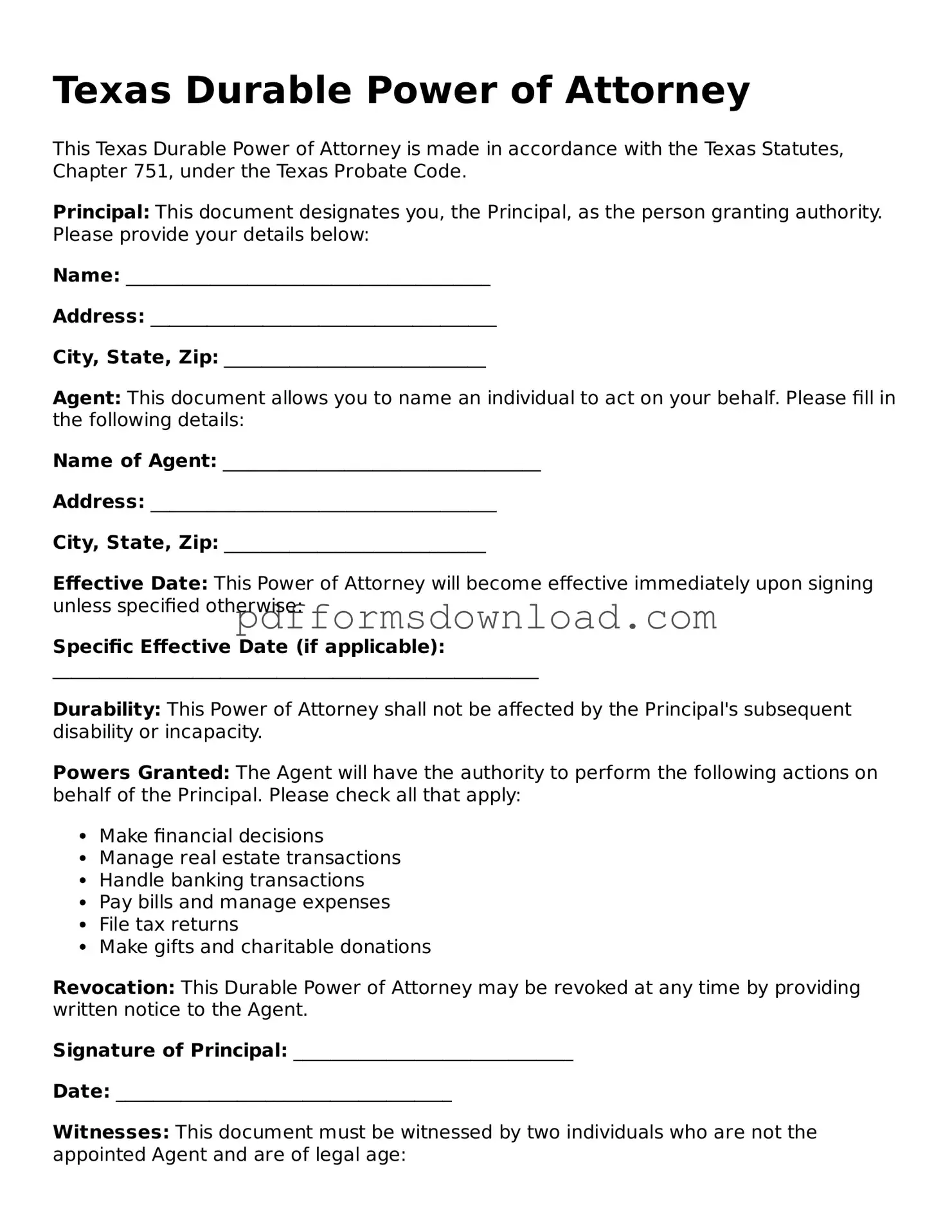Printable Texas Durable Power of Attorney Form
A Texas Durable Power of Attorney form is a legal document that allows an individual, known as the principal, to appoint someone else, referred to as the agent, to make decisions on their behalf regarding financial and legal matters. This document remains effective even if the principal becomes incapacitated, ensuring that their affairs are managed according to their wishes. For those looking to take control of their future, filling out this form is a crucial step—click the button below to get started.
Make This Document Now

Printable Texas Durable Power of Attorney Form
Make This Document Now

Make This Document Now
or
Free PDF File
Your form is almost ready
Complete your Durable Power of Attorney online — edit, save, and download easily.